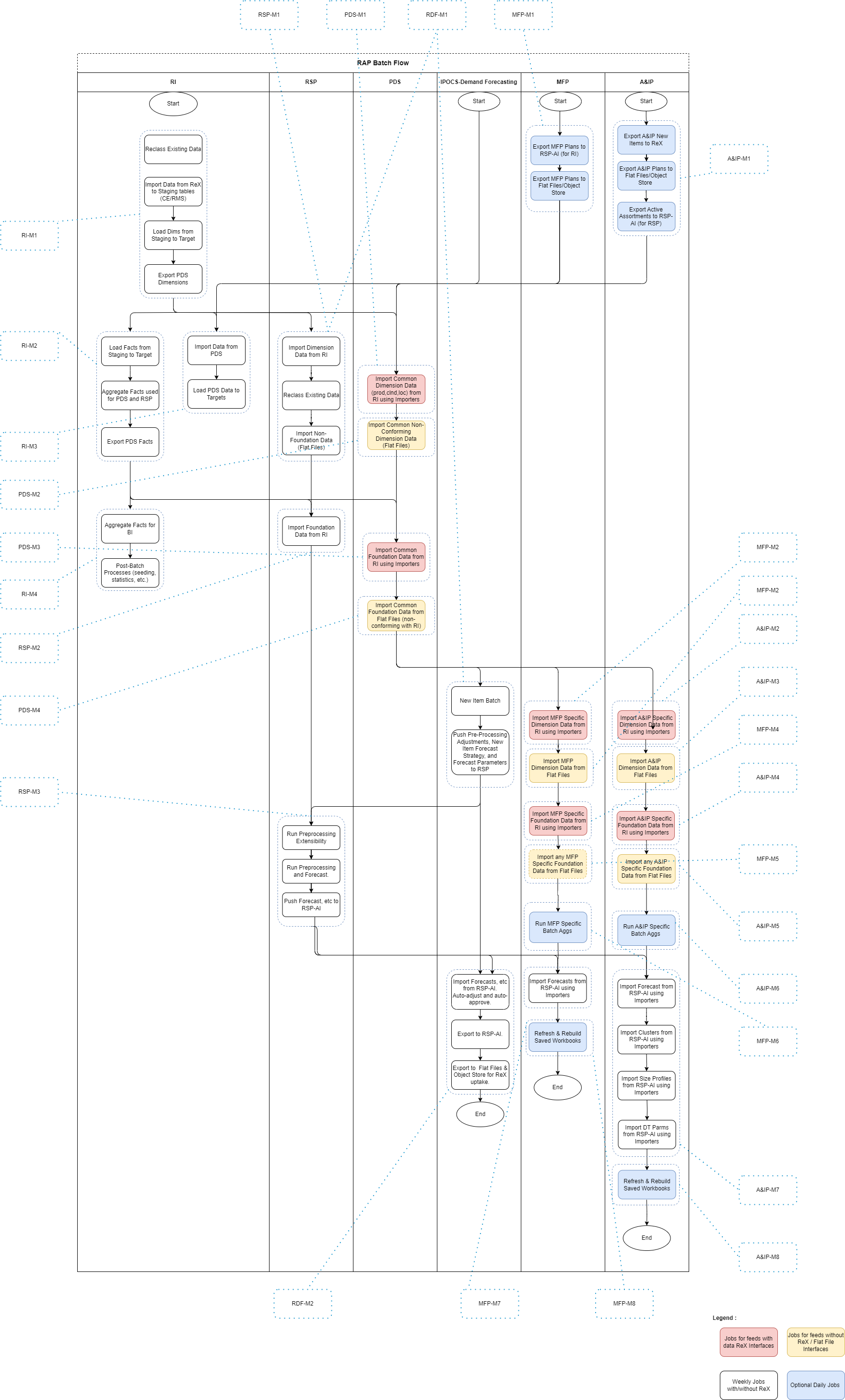Overview
All applications on the Retail Analytics and Planning have either a nightly or weekly batch schedule. Periodic batches allow the applications to move large amounts of data during off-peak hours. They can perform long-running calculations and analytical processes that cannot be completed while users are in the system, and close out the prior business day in preparation for the next one.
To ensure consistency across the platform, all batch schedules have some level of interdependencies established, where jobs of one application require processes from another schedule to complete successfully before they can begin. The flow diagram below provides a high-level view of schedule dependencies and process flows across RAP modules.
Figure 5-1 Batch Process High-Level Flow

The frequency of batches will vary by application. However, the core data flow through the platform must execute nightly. This includes data extraction from RMS by way of RDE (if used) and data loads into Retail Insights and AI Foundation.
Downstream applications from Retail Insights, such as Merchandise Financial Planning, may only execute the bulk of their jobs on a weekly basis. This does not mean the schedule itself can run weekly (as MFP batch has been run in previous versions); those end-of-week processes now rely on consumption and transformations of data happening in nightly batches. For example, Retail Insights consumes sales and inventory data on a daily basis. However, the exports to Planning (and subsequent imports in those applications) are only run at the end of the week, and are cumulative for all the days of data up to that point in the week.
For this reason, assume that most of the data flow and processing that is happening within the platform will happen every day and plan your file uploads and integrations with non-Oracle systems accordingly.
While much of the batch process has been automated and pre-configured in POM, there are still several activities that need to be performed which are specific to each implementation. TheTable 5-1 table summarizes these activities and the reasons for doing them. Additional details will be provided in subsequent sections of this document
Table 5-1 Common Batch Orchestration Activities
| Activity | Description |
|---|---|
|
By default, most batch processes are enabled for all of the applications. It is the implementer’s responsibility to disable batches that will not be used by leveraging the Customer Modules Management screen in Retail Home. |
|
|
The POM application supports external integration methods including external dependencies and process callbacks. Customers that leverage non-Oracle schedulers or batch processing tools may want to integrate POM with their existing processes. |
|
|
Schedules in POM must be given a start time to run automatically. Once started, you have a fixed window of time to provide all the necessary file uploads, after which time the batch will fail due to missing data files. |
|
|
It is possible to export the batch schedules from POM to review process/job mappings, job dependencies, inter-schedule dependencies, and other details. This can be very useful when deciding which processes to enable in a flow or when debugging fails at specific steps in the process, and how that impacts downstream processing. |